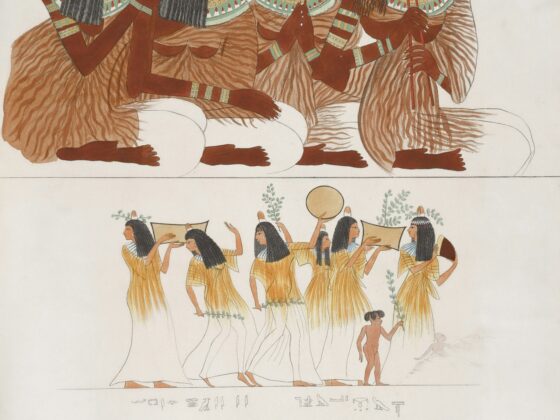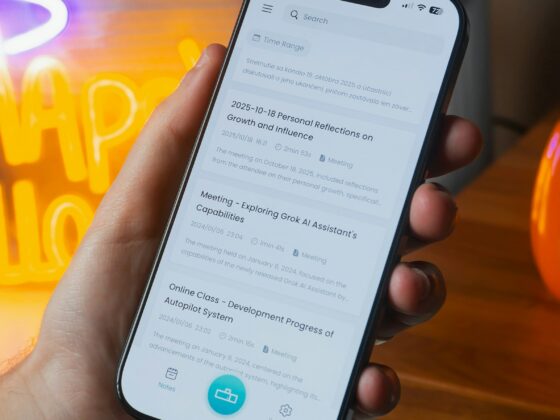The positive trend in guest satisfaction continued in Q2 2025, pushing the Global Review Index (GRI) to a new record of 86.9% globally. This growth was driven by strong performance in North America, the Middle East, and Oceania, with 3-star properties showing the most significant gains (+0.6 pp). However, this peak in satisfaction tells only part of the story, as global review volume grew by a meagre 0.4%. This disconnect was most evident in the sharp drop in review volume in North America (-3.0%) and Europe (-1.2%), reflecting a potential downturn in arrivals for North America and a more complex market reality for the EU.
Takeaways
The online review landscape is shifting. Monitor Google’s surge and manage your hotel’s presence across all relevant platforms.
Global guest satisfaction hit a record 86.9% GRI. Hoteliers should benchmark their performance against this new industry standard.
Review volume is shrinking in key markets, signalling “feedback fatigue.” Hotels must find creative new ways to encourage reviews.
AI-powered review responses are now a necessity. Rapid engagement is a core guest expectation that all hotels must meet.
Despite a positive GRI, Cleanliness and Room scores are declining. Do not neglect these foundational elements of guest experience.
The shifting landscape of review sources
The dynamics between major online review sources continue to evolve. Notably, Google saw an impressive 10% growth in its global review volume in Q2 2025 over Q2 2024. This comes after several quarters of shrinking volume. In contrast, Booking.com’s global review market share shrank slightly by -1.1 pp to 34.9%. This figure sat at 40% just two years ago.
Oddly, Google’s huge increase in review volume did not lead to a higher satisfaction index. The index remained flat at 86.4% compared to one year ago. This makes Google the only major review source not to see an index growth. Even more compelling is the drop in Agoda’s review market share (-1.6 pp). This follows years of sustained growth. Its review volume dropped a staggering 28.1% compared to the same period last year. Recent economic and geopolitical developments have affected some regions. However, this seems to have impacted tourist arrivals more than guest satisfaction. The overall perception of hotel quality continues to grow. The only exception is the vast African market, where the GRI dipped slightly (-0.1 pp) over Q2 2024.


Warning signs in departmental scores
Despite the overall positive GRI, there are signs of a potential trend reversal in specific departments. These shifts may intensify during the upcoming peak season in the northern hemisphere. For example, the Cleanliness index dropped by -1.0 pp over Q2 2024. Likewise, the Room index fell by -0.7 pp.
The Value for Money index also presents a mixed picture. It had turned negative for the past two quarters. In Q2 2025, it dropped only slightly for 5-star hotels (-0.2 pp) and 4-star hotels (-0.1 pp) compared to Q2 2024. This suggests that while guests are still sensitive to price, the decline in perceived value is slowing.
The guest engagement paradox
As we mentioned above, the global review volume grew dimly over the last quarter (+0.4%). This is despite stronger year-over-year growth in tourist arrivals; indeed, preliminary data from the UN World Tourism Barometer for Europe showed that tourist arrivals grew by around 3% in Q1 2025. An explanation may lie in what is called the “Engagement Paradox.” This paradox suggests that brands, in their attempts to measure and reward loyalty, may be taxing their guests. This can inadvertently reduce their willingness to write reviews voluntarily. This issue is sometimes compounded by “survey fatigue.” A high number of feedback requests or targeted marketing campaigns can reduce a guest’s overall propensity for feedback. As a result, hotels receive a lower volume of valuable, spontaneous reviews, even when occupancy is high.


AI’s Growing Influence on Hotel Responses
Over the past three years, we have described a relentless improvement in hotel response metrics. Both Management Response Time and Response Percentage have improved across all star categories. This improvement is largely driven by the increasing adoption of AI tools. These tools can draft a response to a review in mere seconds.
Indeed, these tools have been effective in changing the pace of engagement, with the average response time shrinking from around 14 days in 2019 to just three days today. To demonstrate the significance of this change, an analysis of 3,865 hotels clearly shows a dramatic shift following the introduction of ChatGPT in November 2022. Before AI, a hotel might take up to 14 days to respond to around 75% of its reviews; in 2025, the average response time is just 3.0 days. This rapid engagement is reshaping guest expectations and the overall Global Review Index landscape.


Regional Analysis
Asia
The Asian market has been the world’s best-performing market for the past three years. This last quarter confirmed that trend. The 3-, 4-, and 5-star categories once again achieved the highest regional GRI. However, contrary to 2024, review volume dropped for the second consecutive quarter. It fell by -0.4% over the same period last year. This was partly due to the huge contraction in Agoda’s review volume (-3.3%). In fact, Agoda’s volume declined in every region except Oceania.
We also noticed a slowdown in the major department indexes. In the past, these indices grew at a sustained rate. Now, especially for 5- and 4-star hotels, the Service, Cleanliness, and Room indexes have come to a halt. Some have even reversed their positive trends. Surprisingly, this trend reversal had only a slight impact on the Value for Money index. For 5-star hotels, the index showed a slight drop. Meanwhile, the other two categories actually grew their index.
Europe
The European market showed sustained GRI growth for 3-star hotels. They posted an impressive +0.8 pp increase over Q2 2024. As mentioned earlier, preliminary statistics pointed to tourist arrival growth. Yet, this did not translate into a higher review volume. The region generated -1.2% fewer reviews than in Q2 2024.
This decline is largely ascribable to Booking.com. The platform experienced a slight review volume drop of -1.9%. Nonetheless, it still holds 59% of the region’s market share. At the department level, the first signs of slowdown we highlighted for the 5-star in Q4 2024 continued into Q2 2025. Here, Cleanliness, Room, and Value for Money dropped by 1.6, 1.3, and 0.2 percentage points, respectively, over the last year.
Latin America
In Q2 2025, Latin America’s GRI grew in line with the global trend. This is a change from what we witnessed in Q1 2024. The growth was sustained by the +0.4 pp increase from the 5-star category. Google still holds more than 40% of the review market share in the region. It also bounced back from a -2.3% market share drop last quarter with a +2.0% growth.
Despite this, the region’s total volume dropped. This was due to declines from Booking.com (-0.8%) and Tripadvisor (-1.2%). Bucking the global trend, however, the majority of the department scores grew compared to Q2 2024. F&B posted a remarkable +3.5 pp growth. Additionally, Service saw a +1.0 pp increase over Q2 2024.
Africa
As in Q1 2025, Africa’s GRI slightly dropped in Q2. It fell by -0.1 pp over last year. This was because 4- and 3-star properties lost ground compared to their past performances. On the other hand, the region somewhat benefited from international political turmoil. Its review volume grew by a healthy 7.1% over Q1 2024.
Booking.com, Google, and Tripadvisor still dominate the review market. With a combined share of 86%. However, Holidaycheck has kept growing over the past quarters. It now holds a remarkable 7% of the review share (+2.3 pp over Q2 2024). The region also holds the record for the shortest average response time, at an impressive 2.3 days. Moreover, 5-star hotels replied to over 80% of their reviews (81.1%), showing a strong commitment to guest engagement.
Middle East
This market is traditionally characterized by a marked performance divergence. There is often a gap between 5-star hotels and other categories. However, Q2 showed the latter growing at a faster pace. Indeed, the GRI for 3-star properties grew 1.0 pp. The 4-star category grew by 0.6 pp. In contrast, the 5-star category only grew by 0.4 pp over 2024.
Google’s review volume growth was substantial at +17.9%. This led the tech giant to hold first place in market share, with a staggering 47% (+5.8 pp over 2024). The management response rate now sits at 84.1%. This marks the best performance on this metric among all regions. Furthermore, review volume growth of +3.3% shows the region did not suffer negative consequences from global turmoil. That said, some signs of a slowdown can be teased out of department trends. Cleanliness lost 0.1 pp over 2024, and Room only grew by 0.1 pp.
North America
The region’s Q2 performance is possibly the most interesting. The consequences of political changes from Q1 are starting to take effect. A divergence has been building over the past two quarters. On one side, the GRI performance is again the best among all regions. It shows a 0.8 pp growth over Q2 2024. The North American market is now nearly in line with the European market (86.1% and 86.5%, respectively).
On the other side, the market’s review volume saw the biggest negative shift, falling by -3.0%. North America’s tourist arrivals were initially predicted to grow by around 9%. Instead, forecasts now show a decline between 8.7% and 9.4% year-on-year.. More worryingly, all major department indexes showed a trend reversal compared to 12 months ago. The only exception was F&B. Historically, the region is mired by a huge negative impact from the Room index on potential GRI growth. In fact, in no other region does the Room have a potential negative drag of 3.3 pp on the GRI. It will be interesting to see if recent policies begin to negatively impact the GRI in Q3.
Oceania
The region has a peculiar and stable yearly GRI trend. It shows relatively small variations between peak and off-peak seasons. It is therefore even more relevant to note the impressive growth of 5-star hotels (+0.9 pp over Q2 2024). Review volume has also been growing. This was propped up by Google (+23.8%) and the Ctrip-Trip group (+35.2% and +34.7%, respectively).
The market is once again characterized by a lower-than-average response ratio. For instance, 5-star properties replied to just 53.8% of their reviews. Their average response time is also far longer than the rest of the world at 5.8 days. As in other regions, both Cleanliness and Room underperformed over the last year (-2.6 pp and -3.3 pp, respectively). Meanwhile, the Value index contained its loss to just -0.1 pp over Q2 2024.
Final Words
In the final analysis, the second quarter of 2025 continued the positive trajectory from Q1. The Global Review Index kept growing across most regions. This occurred even as a dip in review generation hit key markets like North America and Europe. The trend reversal in North American tourist arrivals and review volume is striking and warrants close attention in the upcoming quarter. Hotels are getting better at pleasing guests, but they face new challenges. The “Engagement Paradox” suggests that high occupancy doesn’t always translate to more reviews. Furthermore, while AI is revolutionizing response times, core departmental scores like Cleanliness and Room are showing signs of strain in several regions. As we move into the peak season, the ability to maintain standards under pressure will be the true test for hoteliers worldwide.









